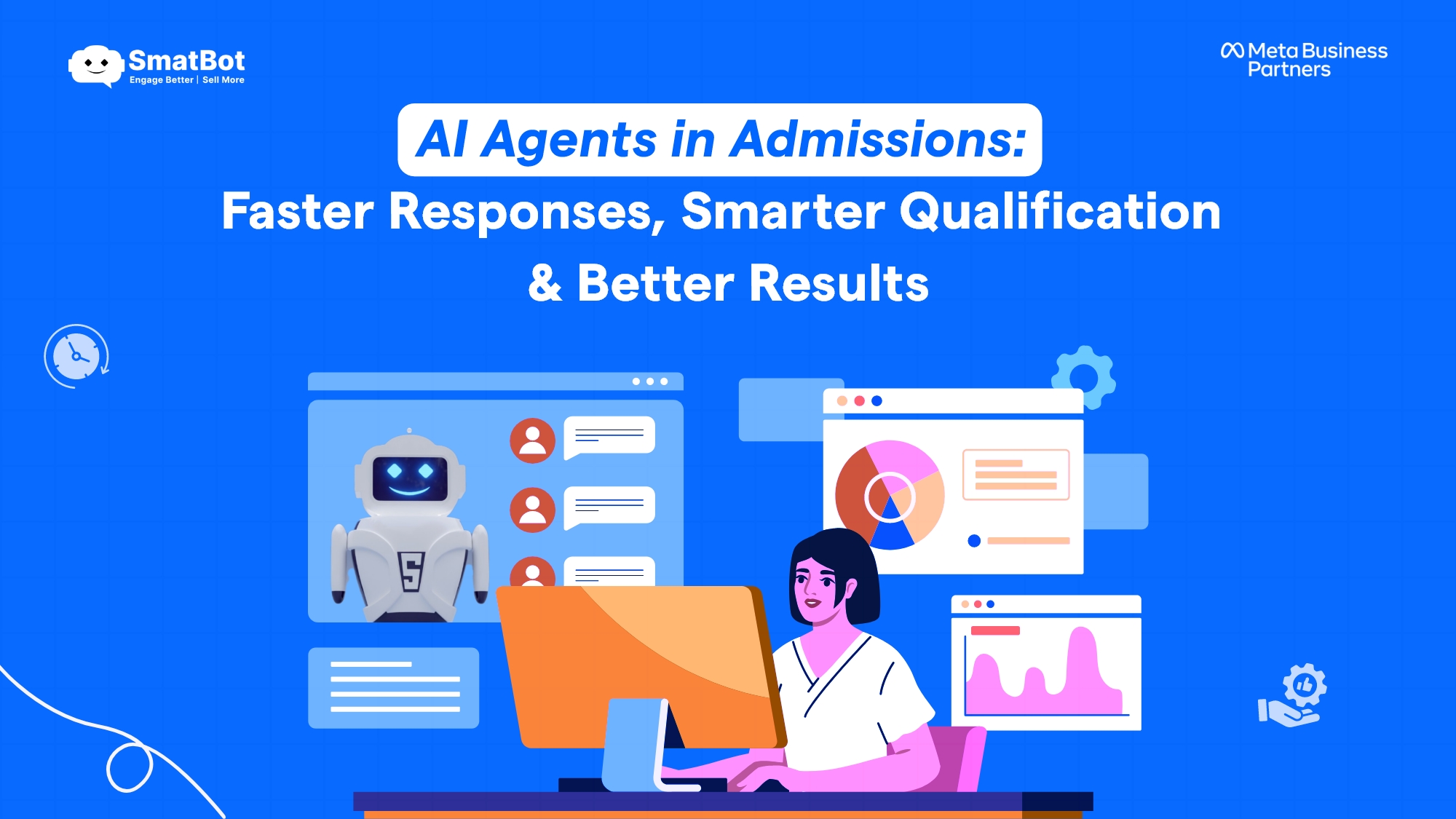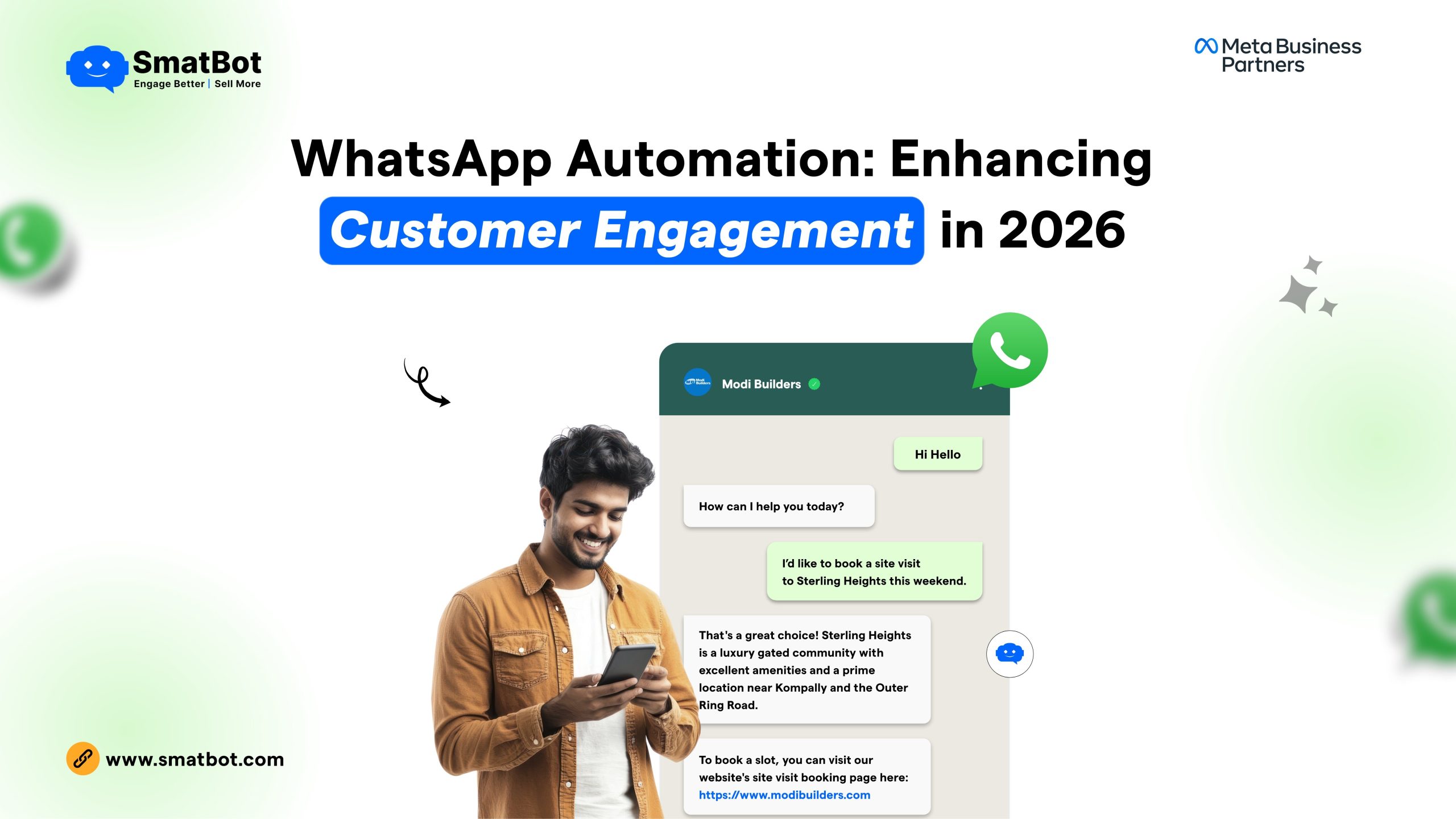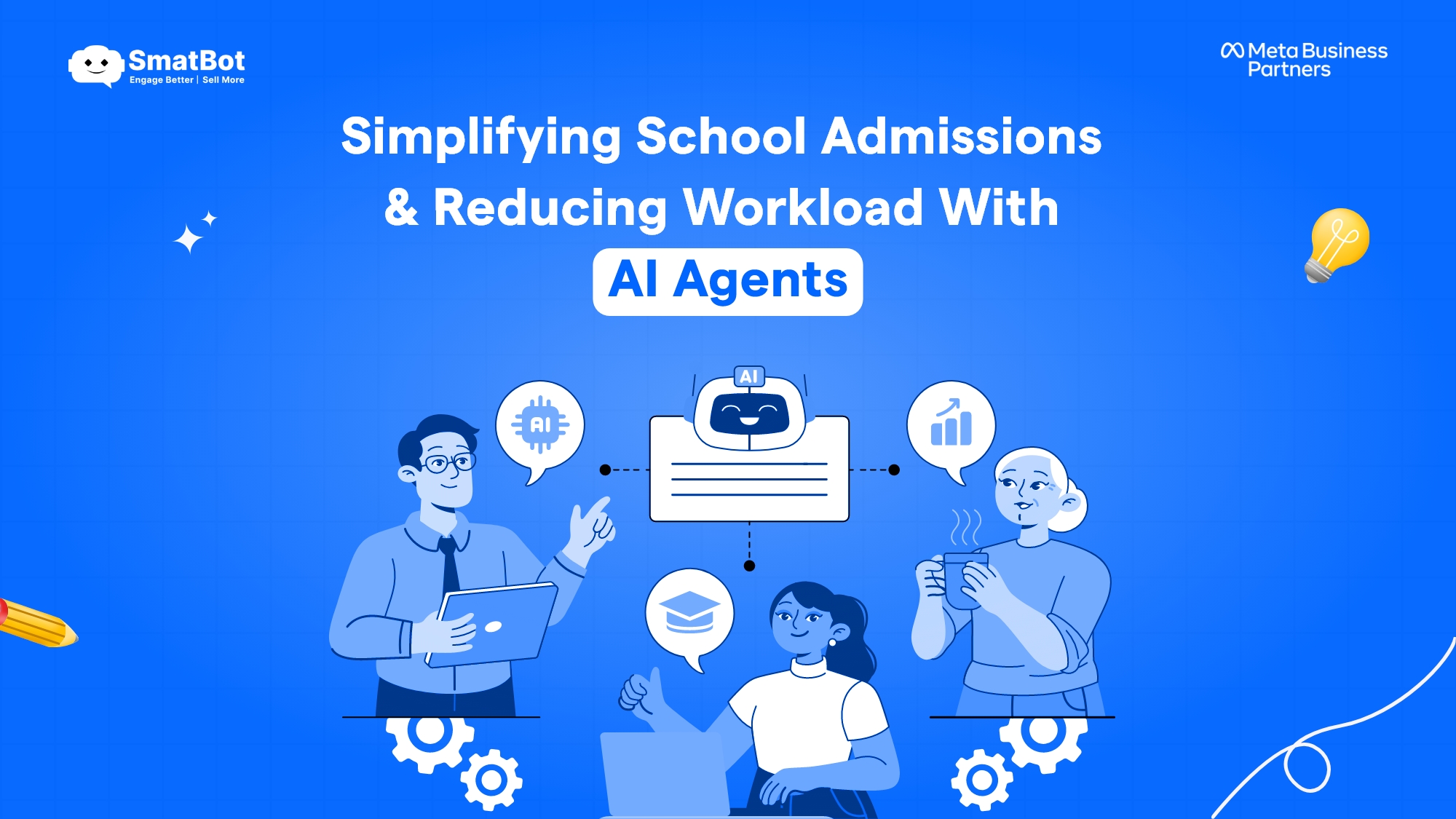Chatbot Statistics That Will Blow Your Mind in 2024
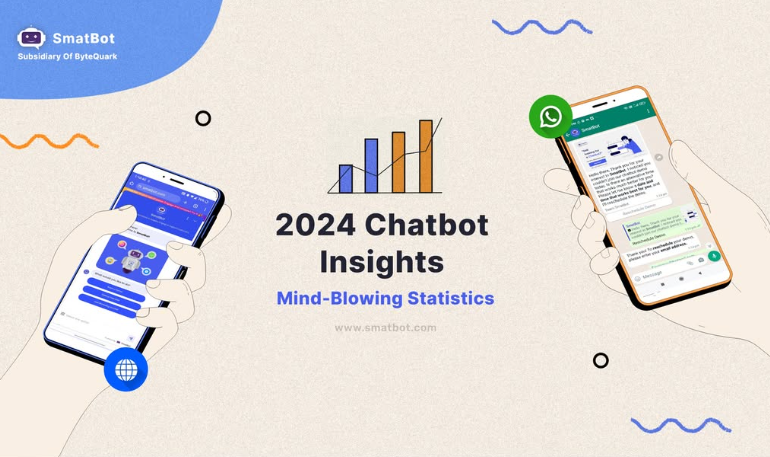
Chatbots are becoming integral to every industry worldwide. You might be surprised to know that the first chatbot was invented in 1966, which makes it older than the Internet. However, it was Facebook that propelled this technology into fame by integrating it into Messenger in 2016. Following this, companies started creating their chatbots, generating enthusiasm among customers keen to try the technology.
The peak of chatbot innovation arrived in 2023 with the introduction of ChatGPT during the massive AI boom. Today, chatbots are immensely popular because they offer a convenient and effective way to interact with customers, provide information and solve complex problems. Importantly, these bots operate 24/7, without rest.
Despite their significant features, some people remain doubtful about the effectiveness and popularity of chatbots. If you’re among those individuals, this article is a must-read. We’ll provide you with chatbot statistics that will surely blow your mind. Furthermore, we’ll discuss the benefits you can obtain by leveraging these bots.
Benefits of Chatbots for Businesses
Businesses can get countless benefits with the help of chatbots. Here is a list of benefits that a chatbot can provide to businesses:
- Reduced cost: Chatbots automate repetitive tasks, freeing up human agents for more complex duties. This leads to lower operational costs and improved resource allocation within the organisation. As per stats, chatbots can reduce customer service costs by up to 30% by handling up to 80 % of routine tasks.
- 24/7 lead generation: Chatbots can help you qualify leads, schedule appointments, and even lock the deal in non-working hours or days. This continuous engagement in your business enhances sales opportunities and expands your business’s customer reach. As per stats, these bots can improve sales by up to 67%.
- Provide valuable data insights: Chatbots can gather valuable data through customer interaction, queries and preferences. You can then use this data to improve product offerings, personalize marketing campaigns and optimize customer support channels. As per stats, 40% of businesses still prefer website leads form for data collection. However, 18% of data is collected via live chat through chatbots.
- Increased customer satisfaction: Chatbots offer personalized interaction, faster resolution and convenient access to customer support, leading to increased loyalty and positive brand perception. As per stats, 69% of customers were satisfied with their last conversation with a chatbot.
- Improved brand image: Chatbots serve as innovative and user-friendly tools to enhance customer service, demonstrating your commitment to digital transformation and customer-centricity. This boosts your brand image and reputation.
Benefits of Chatbots for Customers
Apart from businesses, customers can also enjoy significant benefits with chatbots. Below is a list of top benefits that chatbots can provide to customers:
- Fun and engaging interaction: Serious conversation is something that not every customer will enjoy. Chatbots may infuse the conversation with humour, personality and gamification elements, which makes the experience more enjoyable and engaging for customers. As per a stat, the engagement rate of chatbots ranges from 30% to 40%.
- 24/7 availability: Chatbots provide its users with round-the-clock assistance, answering queries and resolving issues at any time of the day, including night hours. This quick access to customer support significantly boosts customer satisfaction and convenience. As per stat, 64% of customers find 24/7 availability the best feature of a chatbot.
- Multilingual support: Chatbots may break down the language barrier because these bots can be programmed to communicate in various languages, which cater to a broader customer base and offer accessibility to everyone. As per stats, 69% of customers prefer chatbots for instant multi-language communication with customers.
- Personalized conversation: Chatbots can be programmed to understand individual needs and preferences. They can provide personalized suggestions, tailored solutions and a more human-like interaction. Imagine a chatbot welcoming you with your name, remembering your purchase history and suggesting relevant products or customers. As per stats, 47% of customers are willing to purchase an e-commerce product using chatbots because they provide tailored product recommendations.
- Quick and efficient resolution: Chatbots may handle routine tasks like order tracking, product information and basic troubleshooting. This unburdens your customer service agents to tackle more complex problems, which results in quicker resolutions and less customer frustration. 69% of customers would use chatbots to get quick responses to their queries.
Chatbots Business Statistics
Leading organizations and businesses are increasingly investing in AI developments, like Chatbots, in their operation to solve complex queries, boost overall efficiency and productivity and enhance customer service.
Additionally, these bots help businesses predict customer trends, automate routine tasks and personalize marketing campaigns based on the gathered trends data. This enables them to thrive and improve sales and revenue.
The following statistics highlight chatbots’ significant impact across numerous industries, which demonstrates their effectiveness in modern business operations:
- A car rental company used virtual agents as customer service. They stated that these chatbots could automate 68% of service calls.
- Many issues on live chat were resolved within 42 seconds.
- The integration of chatbots may lead to a remarkable 30% decrease in customer service costs.
- 67% of business leaders stated that chatbots increase their sales.
- 56% of customers preferred to chat rather than call customer service.
- 67% of social media users have used social media, live chat and texting to communicate with customer service.
- Businesses using chatbots have witnessed a substantial 20 % growth in conversion rate.
E-commerce Chatbot Statistics
E-commerce businesses are the significant beneficiaries of chatbots. These bots can suggest the right product or service to the customers, decrease customer support costs, generate more quality leads and perform other tasks.
All these aspects mix to provide a seamless experience where nobody gets stuck. Apart from this, when a customer encounters an issue, the chatbot comes to rescue the customer from that problem.
Below, I am highlighting the list of statistics that prove how effective chatbots are for e-commerce businesses:
- Chatbots started to boost e-commerce revenue by 7% to 25 %.
- The expected value of chatbot transactions may reach over $112 billion by 2024. That’s because these bots have become advanced and help in every step of the customer journey, be it selecting a product or returning it.
- 34% of people prefer chatbots in e-commerce over other service-oriented places, such as banks, where an AI bot assists customers.
- 34% of online retail customers accept the usage of chatbots. These bots help automate and expedite routine tasks, such as checking order status and searching for products.
- 35% of consumers have used a chatbot to make purchases. Additionally, over one-third of customers are willing to take shopping advice from a bot.
Customer Preference Chatbot Statistics
Research demonstrates that customers have already developed a preference for chatbots. They are okay with being assisted by a chatbot as long as it answers their questions in real-time and helps them to solve their problem instantly.
One drawback is the waiting time for human agents when chatbots need assistance. In such cases, customers expect to be immediately connected to a live chat with a human agent who can resolve their issues efficiently.
Here are the statistics about the customers’ preferences for chatbots:
- 74% of internet users prefer interaction with chatbots when seeking answers to easy questions.
- 37% of customers prefer chatbots over calling customer service for quick response.
- 48% of customers prefer the chatbot’s ability to resolve issues over the chatbot’s personality.
- 55% of customers express openness to using chatbots for customer services.
- 33% of customers preferred using a chatbot to make a reservation at a hotel or restaurant.
Chatbots Market Statistics
With every passing day, the chatbot industry is growing exponentially. Just a few years ago, chatbots were not the tools that a business preferred to use to assist customers, generate leads, sell products and perform other tasks.
However, several customer service organizations have started using chatbots to enhance productivity. Since then, the chatbot market has never experienced a downturn. In fact, it soared heavily with the advancement of AI.
The following are statistics about the chatbot market statistic:
- The global conversational AI market is expected to soar to $169.4 billion by 2025, which reflects an impressive CAGR of 36.2%.
- A Statista report predicts that the global chatbot market will reach $454.8 billion in revenue by 2027, up from $40.9 million in 2018. This consistent growth since 2018 is no surprise. When a technology benefits both brands and customers, it’s bound to generate significant revenue.
- Gartner predicts that 30% of businesses will leverage chatbots for customer services.
Saas Chatbot Statistics
The SaaS industry is using these bots to improve its productivity. You might be surprised to know that the SaaS industry is witnessing positive growth with chatbots.
Here are the chatbot statistics about this industry proving this significant growth:
- 58% of the companies that turn to the chatbot market are B2B, and 65.1% of those companies are SaaS companies.
- Chatbots have achieved a conversion rate of up to 70% in certain industries.
- 65.1% of SaaS companies have adopted chatbots for their businesses.
Marketing and Sales Chatbot statistics
Chatbots can also be used for marketing and sales, with many companies leveraging these bots for such purposes.
Here, I am sharing a list of statistics that proves how effective chatbots can be for marketing and sales:
- Around 90% of businesses and companies have reported significant improvement in complaint resolution due to chatbots.
- Businesses that use AI chatbots experience a 3x increase in sales conversions compared to those using website forms.
- 58% of businesses have invested in conversational marketing tools to answer the COVID-19 support challenges.
Edtech Chatbot Statistics
Chatbots are widely used in the ed-tech industry. Chatbots can perform various tasks such as providing study tips, offering suggestions for exam preparation, giving career advice and performing other similar tasks within the ed-tech sector.
Let us take a look at the top chatbot statistics:
- 58% of educational institutions stated that chatbots enhance their service offerings. (Zipdo)
- Chatbots in education can save institutions over 30% in customer service costs.
- 80% of customers who have engaged with an ed-tech chatbot reported it as a positive customer experience.
Chatbot Implementation Statistics
While chatbots have made their mark in numerous industries, embracing them remains a challenge for many businesses. There are numerous misconceptions about this technology like it is expensive, complicated to use and integrate, and challenging to develop a full-fledged bot etc.
However, that’s not the case in the actual world. Implementing chatbots is a cup of tea these days. Using intelligent chatbot builders like SmatBot, you can develop and implement it on your website in the blink of an eye.
Let’s look at some chatbot statistics related to its implementation:
- 40% of millennials engage with chatbots in their day-to-day lives.
- Chatbots are mainly used for marketing (17%), sales (41%) and customer support (37%).
- About 67% of brands express satisfaction with their chatbot implementation, as these bots are consistently available and provide swift responses, which customers appreciate.
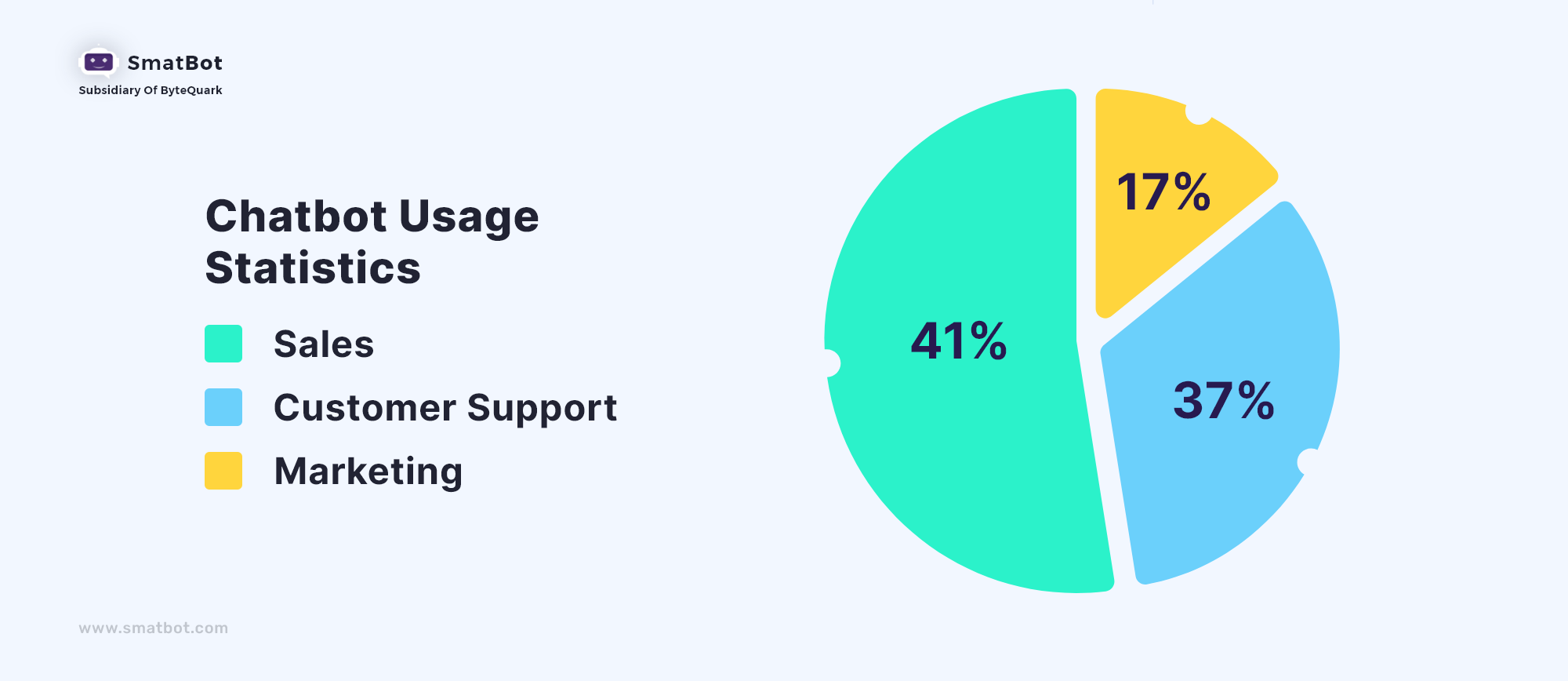
Statistics About the Future of Chatbots
Looking at the present of this technology, the future of these bots seems brighter. More and more businesses will adopt these bots and an increasing number of customers will prefer chatbots.
Let us look at the top statistics about the future of chatbots:
- 70% of customers will replace physical visits at the banks or shops due to chatbots
- 84% of companies believe that chatbots will become more essential for customers.
- Chatbots and other similar technologies will automate 29% of US customer support activities.
- 50% of industry leaders are planning to invest in chatbots in the future.
Chatbots Market Size Forecast
- As per Google Trends data, interest in chatbots has grown 4x over the past 5 years.
- The global chatbot market was valued at $0.84 billion in 2022 and is projected to hit $4.9 billion by 2032, with a 19.29% CAGR from 2023 to 2032.
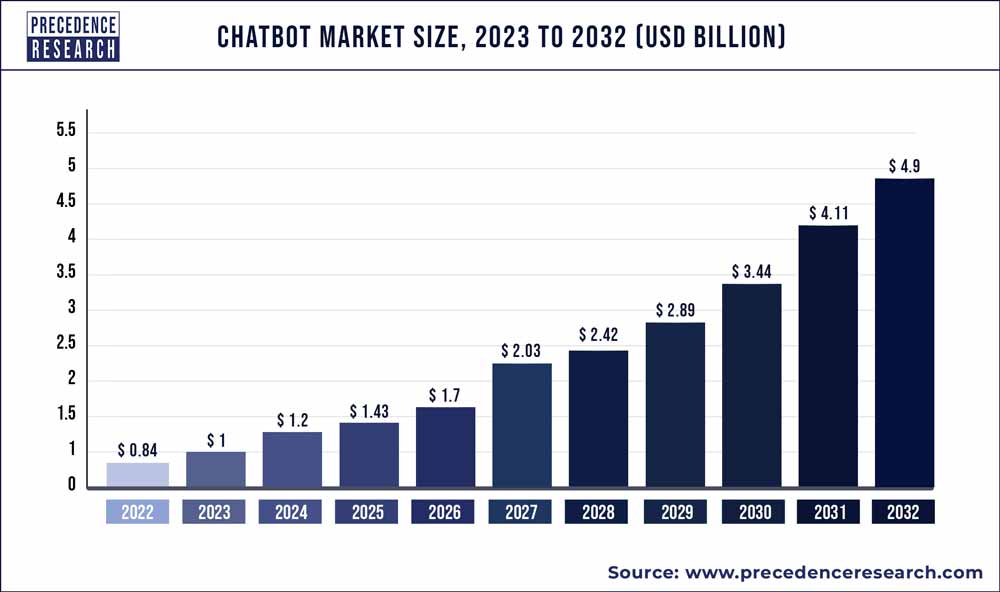
Geographical and demographic usage
- India, the USA, the UK, Brazil and Germany are the top five countries using chatbot.
- Approximately 1.5 billion people are currently using chatbot solutions, primarily in these top five countries. This number is predicted to rise globally, with chatbots projected to become the main customer service channel for 25% of businesses by 2027.
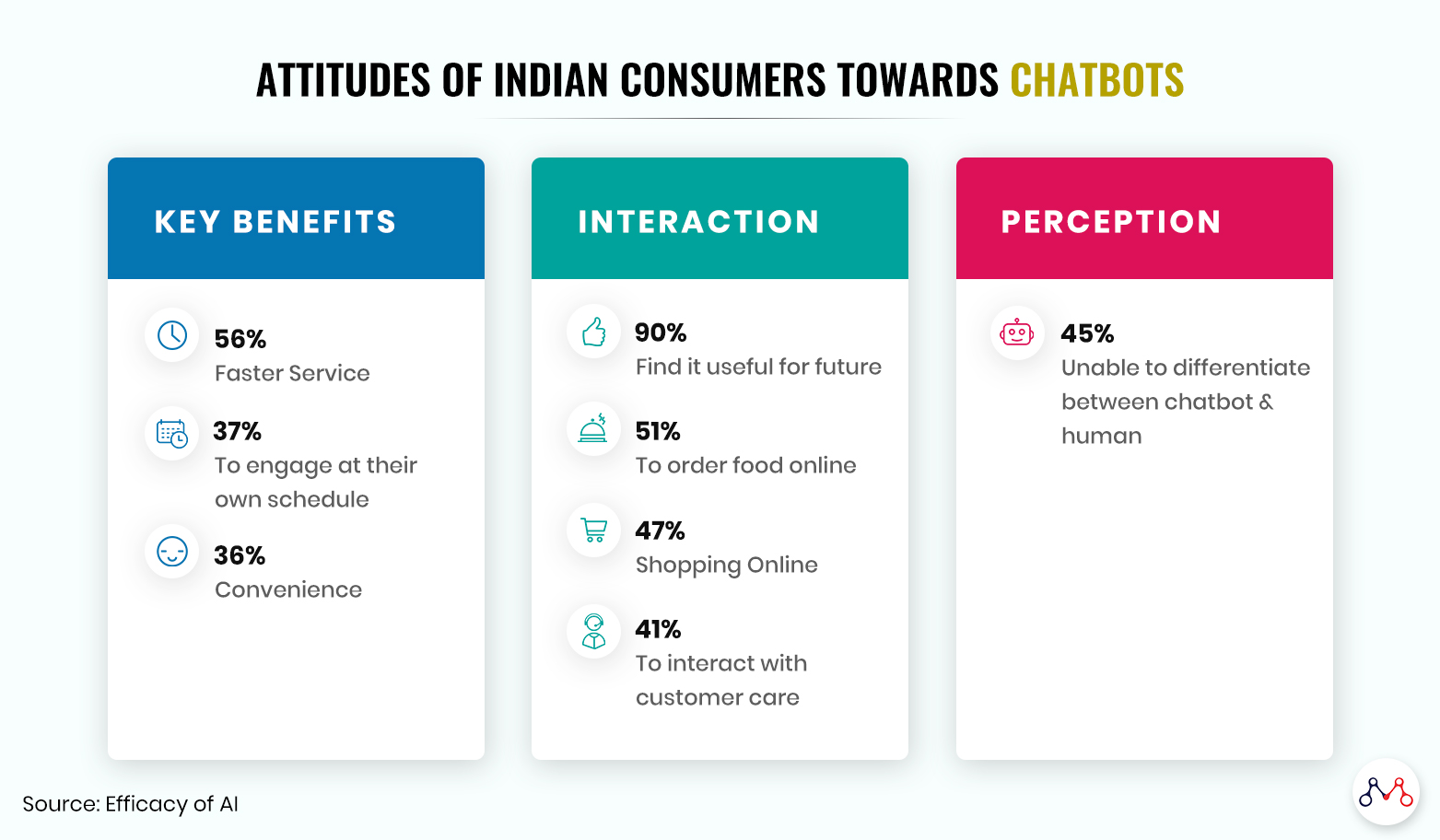
Closing Thoughts
Chatbots are becoming a crucial tool for every industry, from e-commerce to the ed-tech sector. Each industry prefers incorporating chatbots into their business operations.
So, after reading these mind-blowing stats, you must be searching for the best chatbot solution for your business. SmatBot is an AI-driven chatbot builder that empowers you to offer 24/7 customer support.
The best part? You don’t need any programming knowledge to get started with SmatBot’s chatbot services.
So, what are you waiting for? Schedule a demo with us today.
We hope that our article about statistics has helped you understand the effectiveness of chatbots.
Sources:

